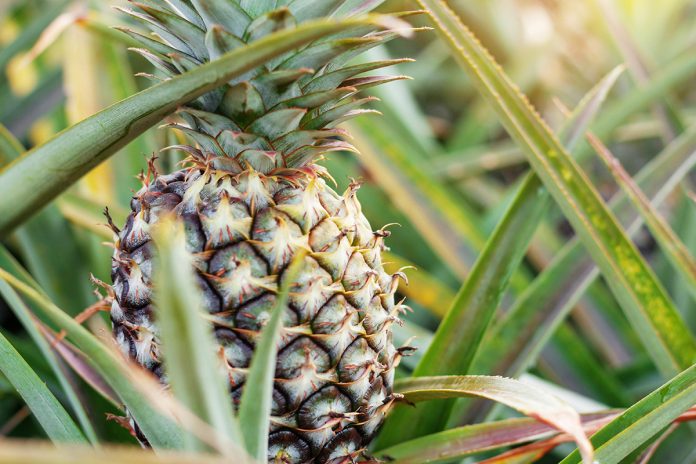AgriLedger, an agricultural-focused blockchain systems provider, is working on a World Bank-backed pilot that offers end-to-end full traceability through their platform to enable transparency along the value chain
As blockchains, distributed ledgers and smart contracts get put through their paces in food supply chains around the world, this fledgling technology market is expected to grow to over $360 billion by 2026 and surge to more than $3.1 trillion by 2030. Driven by a thriving community of active entrepreneurs and developers who are keen to create transparency, reduce operational costs and improve global food safety, the next generation of software architecture is cropping up in provenance and payment systems for daily fare like orange juice in Holland, organic oats in Australia, free-range beef in the United States and chickens in China.
While most of these blockchain pilots and applications in agriculture have commercial gain and significant savings as common goals, a few leaders are going one step further by setting farmer empowerment at the heart of their efforts toward global food security.
Genevieve Leveille, CEO of AgriLedger and Mission Chief of a World Bank-backed blockchain pilot underway among Haiti fruit farmers, is one such unsung hero. Born in Haiti, Genevieve is excited about the opportunity to give back to the country of her birth. AgriLedger has joined forces with SourceTrace, and local Haitian partner Ecole Supérieure d’Infotronique d’Haïti (ESIH) to forge a new narrative for Haiti’s rural communities.
The heart of rural Haiti
As soon as you mention Haiti, images that often come to mind is a nation deemed one of the poorest. Haiti’s history of colonisation, slavery, foreign exploitation of resources, revolt, independence tied to debt, foreign occupation, deforestation, the earthquakes and aftershocks of 2010, Hurricane Mathew in 2016, a reliance on imports, little infrastructure and inadequate education are, after all, the tales told in worldwide headlines. It just might look as though Haiti is a nation on its knees until one takes a moment to notice the resilient core of the Haitian people. It’s easier to see the effects of the Haitian community spirit in places like the Artibonite Valley, where thousands of trees are planted every day and the forests are returning.
There is, if you will, a tangible sense among the rural people of Haiti of taking care of their natural resources and of each other. In the cities, this is echoed in communities of tech entrepreneurs and advocates like Banj and Consortium partner ESIH who are back stronger now with more resilient systems than before. Beneficiaries of the Blockchain/DLT Pilot underway the first quarter of 2019 are the Haitian fruit farmers, their customers and families who can look forward to this year’s harvest and to reaping the benefits of market inclusion and improved food security. Binding agriculture to digital technology by tagging fresh produce from farm to table broadens the interaction of communities.
Access to efficient markets
Perhaps no one understands better the effects of untold losses and hardships than the farmers and their families. Yet their focus on the future, with a ‘Transparent Trade Ledger’ places the hard-earned high-quality produce of Haiti’s smallholder producers into a system that will see any intermediaries not adding value disappear unless they provide a much-needed service at a reasonable cost. Margins that were arbitrated by local exporters will revert back to producers and their families. The Blockchain/DLT solution enables farmers to sell in more efficient markets where the spot price for their produce is determined by supply and demand rather than by the power of negotiation.
Perhaps no one understands better the effects of untold losses and hardships than the farmers and their families.
To help accomplish this, AgriLedger together with SourceTrace and ESIH are supporting the formation of businesses as platforms based on Blockchain/DLT. A custom-built platform for fresh produce chains in Haiti allow buyers to scan a mango’s QR code and see whose tree the mango comes from, how the mango was packaged and transported, and what costs were involved at each step from the moment a mango was picked from a tree to the moment it’s paid for by a buyer. The cold-chain logistics data including registration, certification, transport and sale documents collected along the path are made immutable and visible in friendly formats on the web and a smartphone.
Reducing risks in the chain
Starting this year, the Consortium’s Blockchain/DLT solution will progress from its beta version to full commercial operation within the fruit value chains in Haiti and to other commodities. In many ways, the Haitian farmers of mangoes, avocadoes and pineapples will see more robust protection against the many risks they face in bringing their fruits to harvest and offering their produce up for trade. The payment system makes transaction data available to all participants in real time, with only the vetted endorsers able to validate transactions, while keeping track of how much is owed to those on the value chain.
In many ways, the Haitian farmers of mangoes, avocadoes and pineapples will see more robust protection
As Genevieve Leveille explains:
“Maintaining security at each step in the chain is a priority because we’re setting out to benefit the farmers by increasing their livelihoods and those of their families. By consulting with and training community members in the use of the Blockchain/DLT solution, we hope to see long-lasting improvements within the farming culture of Haiti with sustainable finance mechanisms to ensure the longevity of the project.
“With responsibility for security distributed across the chain through a SecOps approach, we’re encouraging collaboration and transparency. Ecole Superieure d’Infotronique d’Haiti (ESIH) students will participate in the community training sessions and cross-functional team activities so that local preferences and norms are embedded within the solution.”
Stronger together
In collaboration with the World Bank, the Consortium plans beyond this pilot, to extend its Blockchain/DLT solution in Haiti to include other value chains. This will see the mango, avocado and pineapple farmers move closer to broader market inclusion and improved food security soon followed by the producers of coffee and cocoa. It’s easy to see why this pilot underway in Haiti has a lot going for it, with Mission Chief Genevieve Leveille originating in Haiti and homegrown technology students involved in its development, along with deep local partners in place.
Genevieve Leveille
AgriLedger Ltd.
hello@agriledger.co
www.agriledger.io
www.twitter.com/Agriledger
*Please note: This is a commercial profile











